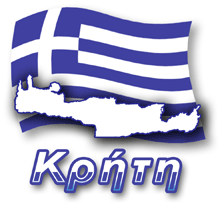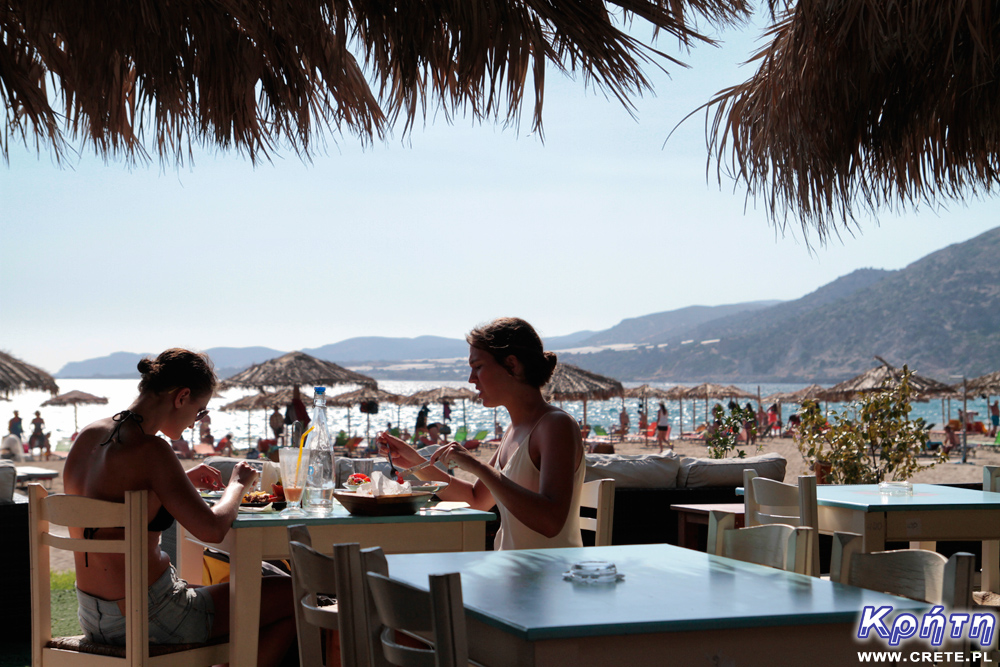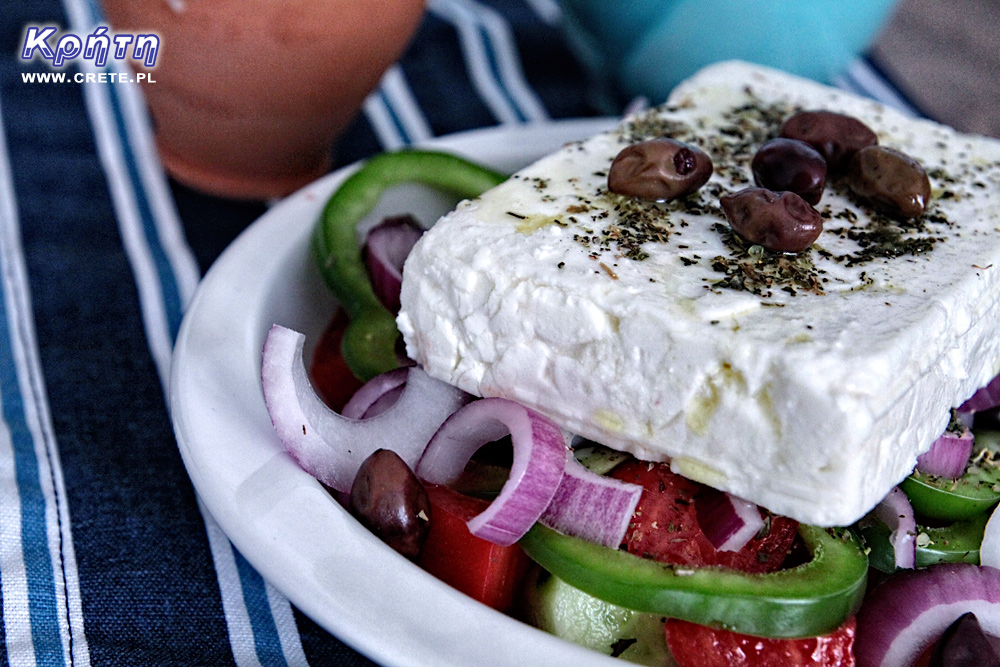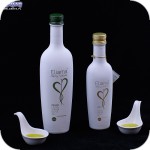
A few weeks ago, researchers from Greece and Spain dealing with the Mediterranean diet published an article on what the Mediterranean diet is NOT . The authors of the report include Antonio Trichopoulou and Miguel Ángel Martínez-González , who have had a lot of research and reviews on this way of eating. This time, however, the scientists decided to deal with the common myths and misconceptions that arose around the Mediterranean diet.

Each of us has met many times with opinions about the health impact of the Mediterranean diet. These opinions are not unfounded, because the wide beneficial effects of this diet are confirmed by numerous scientific studies. Unfortunately, apart from reliable scientific studies available in specialist press, there are also many much simplified information on the use of such a diet.
Problems related to the correct definition appear not only among consumers, but also in the group of "professionals" speaking on the subject. Some articles about the Mediterranean diet mislead readers because they define this type of diet as a diet that meets at least two of the nine traditional characteristics of the Mediterranean diet (!). Meanwhile, a diet understood in this way is basically useless, because there is no such thing as a minimum plan. Likewise, there is a frequent conviction that it is enough to include only certain components characteristic of this diet in order to recognize that we are using the Mediterranean diet. Unfortunately, but drinking wine with meals (even moderate amounts) and eating more nuts will hardly make our Mediterranean diet. ;-)
It is worth to explain the basic assumptions and deal with the commonly prevailing myths. The more so because it is about what to crumble copies because the correctly understood and applied idea of the Mediterranean diet effectively counteracts many chronic illnesses. It is worth mentioning such as cardiovascular disease, diabetes, cancer, obesity. It is obvious that reducing the risk of these diseases increases our chances for a long and healthy life.
It is necessary to know that the concept of the traditional MedDiet ( Mediterranean Diet ) was based on the diet of the Cretans, parts of Greeks and Italians, which prevailed there before the mid-1960s. At that time, the rates of chronic diseases in these areas were among the lowest in the world, and life expectancy was one of the highest. The 1960s set a conventional boundary followed by globalization, which also influenced what the current Mediterranean people eat and how.
MedDiet relies on the use of the general pattern of nutrition and not on the consumption of individual products used in this diet. As the authors emphasize, it is possible to use the traditional Mediterranean diet in countries far from the Mediterranean, but this requires many changes in eating habits. Something that is natural for the people of Greece, is no longer for people living in the north of Europe or in America. The availability of products, especially fresh vegetables and fruits, is one of the pillars of this diet. Also, high-quality oil, cheap and easily available in Greece, in other countries is an expensive fat that is even considered a luxury product.
It is often mistakenly assumed that the Mediterranean diet is low in fat. It is just the opposite, because the overall fat content is relatively high and ranges from 30-45%. The main source is virgin olive oil (minium 15%). The owners of Greek taverns and houses know very well that no one regrets here the oil and abundantly topping it with both raw vegetables and cooked food. It's never symbolic of precisely measured quantities, just a solid portion of oil poured straight out of the bottle.
The presence of extra virgin olive oil on the tables is the basis of this diet, and the Cretans / Greeks use it almost for everything. Rich in active polyphenols and anti-oxidants Extra Virgin Olive Oil (EVVO) has been repeatedly indicated in scientific studies as the main source of health. It is worth knowing that it can not be replaced by any other product. According to scientific studies, oils of lower quality do not have such pro-health properties.
In addition to consuming a large amount of oil in the Mediterranean diet at the bottom of the pyramid there are legumes, cereals, fruits and vegetables. Slightly higher are dairy products and fish and seafood, while meat appears the least. Sweets occur occasionally in it. A typical dessert consisted of fresh fruit instead of ice cream, cakes, sweets or creamy desserts. Sweet pastries were reserved for special occasions. Such a model of nutrition did not result from fashion, but was dictated by the limited availability of products and the poverty prevailing at that time.

What other misunderstandings about the Mediterranean diet most often appear in studies devoted to this topic?
The researchers decided to search and read the available publications on the subject. The search covered various articles in different languages (English, Spanish, Italian, French) made available until May 2017. Below we present the conclusions that have been collected.
Unfortunately, no, because the contemporary style of feeding the Greeks is less and less like the traditional model of the Mediterranean diet. Globalization, greater wealth and the availability of finished products reflect the negative mark on the kitchen habits of the inhabitants of Greece. Change of habits is visible to the naked eye. Obesity is not the result of adding a large amount of oil to vegetables only excess sugar, meat and fatty snacks. A negative example may be fries being a popular addition to many dishes. Potatoes fried in deep oil definitely do not belong to the MedDiet canon. In addition, it is worth knowing that the producers of other oils are constantly working hard to make the Greeks convert their fantastic oil to other fats, which unfortunately are not so healthy.
The Greeks have slowly stopped eating their traditional food, which is one of the healthiest in the world. More and more of them eat meat every day, not once a month like half a century ago. In their modern diet, processed and caloric food is becoming more and more popular. Greeks are increasingly willing to reach for fast food, which often drink carbonated carbonated beverages.
source: www.mdpi.com/2072-6643/9/11/1226

Customers of the kreta24.pl store know that they can find here excellent Cretan and Greek oils and many other organic products. We have already written about a very high quality assortment of this store many times. This time we would like to draw your attention to the very high quality of Eliama oil produced by Elli's farm in Agia Barbara in Crete.

We have been writing about the health-promoting properties of the Mediterranean diet on our website many times. So far, various types of scientific studies have pointed mainly to the links between the Mediterranean diet and the smaller incidence of specific diseases. However, the results of the research recently published by the Annals of Internal Medicine also show the beneficial effects of this diet on better quality of health after the age of 70.

Feta is a soft cheese with about 40% fat content. It is also fragile and melts well. Thanks to storage in brine, it retains freshness for a long time. The conditions in which feta ripens affect its taste. It can be spicy, mild or more salty. Greeks usually have their favorite types and buy them.


Komentarze
komentarz z
Znakomity artykuł. Zwłaszcza jego podsumowanie bardzo trafne. W tej chwili chyba większość nas, Polaków lepiej odżywia się niż Grecy, zwłaszcza ci młodzi... Ci ostatni są już "zamerykanizowani" w 100 % i nie mają pojęcia co to kuchnia grecka... A tak na marginesie jest różnica pomiędzy "dietą śródziemnomorską", a "kreteńską" i to właśnie tak naprawdę ta ostatnia jest uważana za najzdrowszą na świecie. Oczywiście w badaniach i literaturze dla uproszczenia używa się sformułowania "dieta śródziemnomorska". W porównaniu jednak do innych "dieta kreteńska" opierała się na jedzeniu dużo większej ilości owoców i warzyw, a mniejszej ryb. Mięso w zasadzie tylko w niedziele i święta. Za to oliwa... hulaj dusza. Około 35 litrów na statystycznego Kreteńczyka rocznie... ;)
komentarz z
Tak, zgadza się. Taka dieta była wymuszona przez życie. Jedli to co było dostępne: warzywa, oliwki, oliwę. Mięsa mieli mało więc gościło na stołach rzadko. Obecnie w porównaniu z tamtymi czasami nie mogą narzekać, stąd obecność nadmiaru jedzenia i fast foodów.
komentarz z
Myślę, że dieta śródziemnomorska to nie tylko jedzenie - to styl życia, harmonogram posiłków i słońce. Dopiero w połączeniu dawało niesamowity efekt, którego niestety już nie widać.
komentarz z
Powoli odchodzi pokolenie stulatków którzy dożyli tego wieku na zdrowej diecie.
komentarz z
Znakomity artykuł. Seria przemian prowadzi do powstania nowych zmiennych zasad żywienia ,poglądów na siebie i świat
Wypełnij poniższy formularz aby dodać komentarz
lub kliknij w poniższy link aby skorzystać z możliwosci komentowania przez facebooka:
https://www.facebook.com/crete.poland/posts/10155042403667551